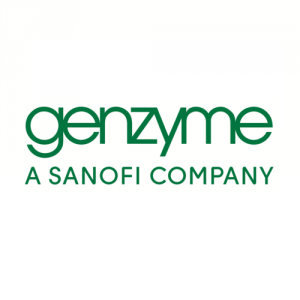Genzyme Resubmits Multiple Sclerosis Drug Lemtrada For FDA sBLA Approval Review
Written by |

 Cambridge, Mass. Based Genzyme, a Sanofi subsidiary, announced May 30 that the U.S. Food and Drug Administration (FDA) has accepted for review the company’s resubmission of its supplemental Biologics License Application (sBLA) seeking approval of its proprietary drug Lemtrada (alemtuzumab) for treatment of relapsing forms of multiple sclerosis (MS). A six-month review period has been assigned for the Lemtrada sBLA. Genzyme expects FDA action on the sBLA in Q4/2014
Cambridge, Mass. Based Genzyme, a Sanofi subsidiary, announced May 30 that the U.S. Food and Drug Administration (FDA) has accepted for review the company’s resubmission of its supplemental Biologics License Application (sBLA) seeking approval of its proprietary drug Lemtrada (alemtuzumab) for treatment of relapsing forms of multiple sclerosis (MS). A six-month review period has been assigned for the Lemtrada sBLA. Genzyme expects FDA action on the sBLA in Q4/2014
The resubmission of Lemtrada is based on data from the same clinical studies included in the original sBLA, and additionally provides supplemental analyses and additional information to specifically address issues previously noted by the FDA in its December 27, 2013 Complete Response Letter. The company resubmitted the sBLA earlier this month following constructive discussions with the agency.
According to a Multiple Sclerosis Society Of Canada (MSSoC) drug profile, Lemtrada (alemtuzumab) is a monotherapy delivered by intravenous infusion for management of relapsing-remitting multiple sclerosis in adults with active disease defined by clinical and imaging features, to reduce the frequency of clinical exacerbations (relapses) and to delay progression of physical disability.
The Society says clinical trial results from a study assessing the safety and efficacy of alemtuzumab compared with interferon beta 1a as a first line therapy in previously untreated people with relapsing-remitting MS, demonstrated treatment with alemtuzumab to be more effective at the end of the study period than treatment with interferon beta 1a.
Additionally, they say findings from a separate study assessing the safety and efficacy of alemtuzumab compared with interferon beta 1a in people with relapsing-remitting MS who have relapsed despite first-line treatment (interferon beta or glatiramer acetate) suggest that alemtuzumab was more effective in reducing relapse rate and disability progression compared with interferon beta 1a.
Interim results from the first year of the extension study of LEMTRADA were presented March 21, 2013 at the American Academy of Neurology meeting in San Diego, California.
The Phase III trials of LEMTRADA were randomized, two-year pivotal studies comparing treatment with LEMTRADA to Rebif (subcutaneous interferon beta-1a 44 mcg) in patients with relapsing-remitting MS who were either new to treatment (CARE-MS I) or who had relapsed while on prior therapy (CARE-MS II).
The CARE-MS trials were Phase III, global, randomized clinical trials designed to evaluate whether the investigational MS therapy LEMTRADA could achieve meaningful efficacy and safety improvements over the approved, active comparator Rebif (subcutaneous interferon beta-1a 44 mcg), a standard treatment for relapsing-remitting MS.
[adrotate group=”4″]
The CARE-MS I study evaluated 581 patients naïve to prior MS treatment, except for steroids. The CARE-MS II study evaluated 840 patients who have had at least one relapse occurring while on MS therapy, including standard injectable disease modifying therapies. Genzyme announced publication of results of these studies in The Lancet in November 2012.
In the both trials, LEMTRADA was given as an IV administration a total of eight times over the course of the two-year study. The first treatment course was administered on five consecutive days, and the second course was administered on three consecutive days 12 months later. Rebif 44 mcg was administered by subcutaneous injection three times per week, each week, throughout the two years of study.
In the third-year following initial treatment, starting the extension phase of the trials, patients who experienced resumed disease activity were retreated with LEMTRADA once daily for three days. Patients who took Rebif in the pivotal study phase and crossed over to receive LEMTRADA in the extension phase received LEMTRADA once daily for five days and then once daily for three days one year later.
 Genzyme reports that more than 90 percent of patients participating in the Phase III pivotal trials enrolled in the extension study. Patients who originally received LEMTRADA were eligible to receive additional treatment in the extension study if they had experienced at least one relapse or at least two new or enlarging brain or spinal lesions.
Genzyme reports that more than 90 percent of patients participating in the Phase III pivotal trials enrolled in the extension study. Patients who originally received LEMTRADA were eligible to receive additional treatment in the extension study if they had experienced at least one relapse or at least two new or enlarging brain or spinal lesions.
These interim results are from the first year of the extension study for patients who previously received LEMTRADA in the two-year studies. Findings cited are based on patients who enrolled in the extension study:
More than half of patients (67 percent in CARE-MS I and 55 percent in CARE-MS II) who received LEMTRADA in the pivotal trials and enrolled in the extension study were still relapse-free through the first year of the extension study.
In the first year of the extension phase, the annualized relapse rate for patients who received LEMTRADA in the pivotal trials was 0.24 and 0.25, comparable to the annualized relapse rate for those patients in CARE MS I and CARE-MS II, respectively.
Through year three, 72.4 percent of patients in CARE MS I and 70.0 percent in CARE MS II had improved or stable disability as measured by EDSS. At three years, 88 percent and 80 percent of patients who received LEMTRADA in the pivotal trials, respectively, did not experience six-month confirmed sustained accumulation of disability. More than 80 percent of patients treated with LEMTRADA in the pivotal studies did not receive a third course of treatment within a year of entering the extension study.
“These results underscore the tremendous promise that LEMTRADA holds for MS patients,” commented David Meeker, M.D., Genzyme’s President and Chief Executive Officer. “We’re pleased to be able to present these three-year results that provide us with important new information about LEMTRADA and are consistent with the published results from our Phase II extension study.”
Genzyme says safety results from the first year of the extension study were reported for patients who received LEMTRADA in the Phase III pivotal studies. No new risks were identified. The frequency and type of common and serious adverse events in the first year of the extension study were generally similar to those in the Phase III pivotal studies. The most common adverse events during this period of time were infections, including predominantly mild to moderate upper respiratory and urinary tract infections.
There were two deaths. One, as previously reported, was from sepsis. The other death was presumed accidental and deemed unrelated to study treatment. The cumulative incidence of autoimmune thyroid disease over three years was 29.9 percent, as expected based on the Phase II study experience. Additionally, over three years, approximately 1 percent of patients developed immune thrombocytopenia (ITP) and 0.3 percent developed nephropathy, all of whom responded to treatment. These cases were detected early through routine monitoring. Patient monitoring for autoimmune disorders is incorporated in all Genzyme-sponsored trials of LEMTRADA.
The MSSoC notes that Lemtrada/alemtuzumab is recommended for people who have had an inadequate response to interferon beta or other disease-modifying therapies, explaining that Monoclonal antibodies are proteins that bind to a unique site (called an antigen) on cells. Lemtrada binds to antigen CD52, which is present at high levels on certain cells of the immune system. They explain that the mechanism by which alemtuzumab exerts its therapeutic effects in MS is not fully understood, but may involve immunomodulation through the depletion and repopulation of lymphocytes (white blood cells).
The MSSoC says Lemtrada/alemtuzumab is indicated for management of adults with relapsing-remitting multiple sclerosis (RRMS), with active disease defined by clinical and imaging features, who have had an inadequate response to interferon beta or other disease-modifying therapies, and treatment should be initiated and supervised by neurologists experienced in the treatment of people with MS and who have fully familiarized themselves with the efficacy and safety profile of Lemtrada. Individuals should be premedicated with corticosteriods immediately prior to Lemtrada administration for the first 3 days of any treatment course. Pretreatment with antihistamines and/or antipyretics prior to Lemtrada administration may also be considered. Oral antiviral medication for herpes infection should be administered to all individuals starting on the first day of each treatment course and continuing for a minimum of 1 month following treatment with Lemtrada. The MSSoC notes that it is not known if Lemtrada is safe and effective in children under age 18 or adults over 65.
Lemtrada is administered clinically as an infusion into a vein. Each infusion takes approximately four hours, and for the first treatment course, patients receive one infusion daily for five days. One year later, individuals receive one infusion per day for three days. Each infusion delivers 12 mg of Lemtrada,,and there is no Lemtrada treatment between the two courses.
The most common side effects of Lemtrada reported are infusion-associated reactions (headache, rash, fever, nausea, hives, itching, insomnia, chills and flushing) and infections (nasopharyngitis, urinary tract and upper respiratory tract). However the label also carries warnings about additional potential serious risks, including serious infections and autoimmune conditions, including thyroid disease, cytopenias (decreased white blood count) and kidney disease that the MSSoC reports can occur in people receiving Lemtrada. Consequently, a comprehensive risk management program incorporating education and monitoring to support early detection and management of these identified risks is in order, and prior to starting Lemtrada treatment, patients will require blood and urine tests, and an EKG. Blood and urine tests will continue for 4 years after an individual’s last Lemtrada infusion, and it is important to get this testing done according to the recommended schedule in order for physicians to watch for signs of autoimmune side effects so that treatment can occur quickly, if needed.
Genzyme holds worldwide rights to alemtuzumab and has primary responsibility for its development and commercialization in multiple sclerosis. Bayer HealthCare holds the right to co-promote alemtuzumab in MS in the United States. Upon commercialization, Bayer will receive contingent payments based on global sales revenue.
Sources:
Genzyme Corporation
Multiple Sclerosis Society Of Canada


